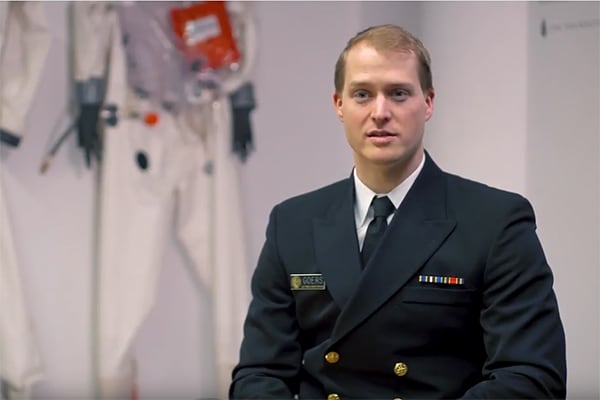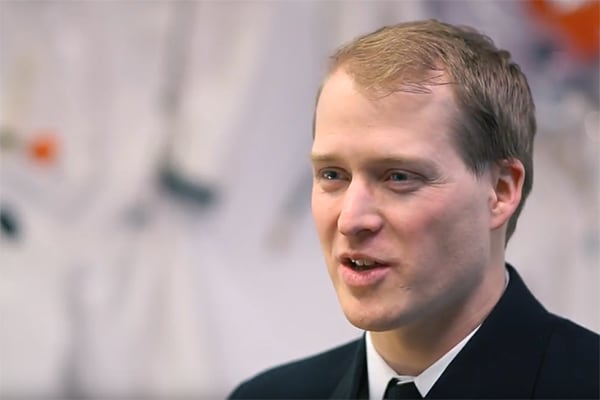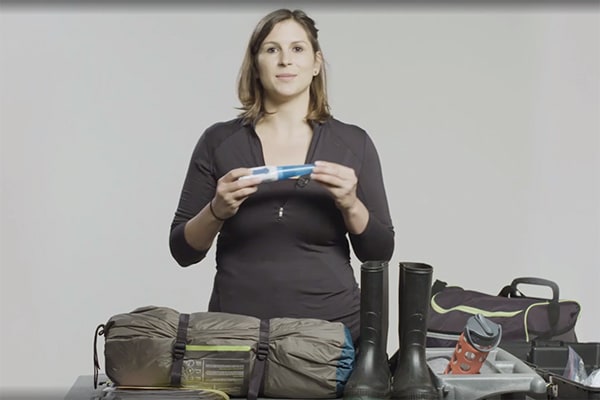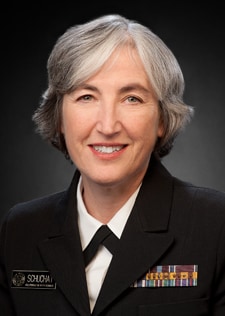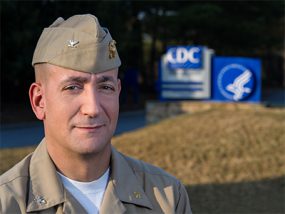Hear Our Stories
EIS officers are passionate about public health and public service. When they share stories about their journey as a CDC disease detective, their enthusiasm shows. These stories provide a taste of the EIS experience from multiple perspectives and formats including presentations given at the annual EIS conference, candid social media interviews, news media and podcast interviews, and CDC featured stories on outbreak responders.
Learn about the compelling investigative work and personal experiences of an LLS fellow in this TED-style Talk, Tropical Tees, Musibis, and Making a Team: Successful Collaboration in American Samoa. In this video, Class of 2023 LLS fellow Hans Desale detailed a unique collaboration between Puerto Rican and American Samoan epidemiology and laboratory teams as they worked to conduct a dengue serosurvey of school children in American Samoa as part of a pre-vaccination campaign in the Pacific Islands.
Learn about the compelling investigative work and personal experiences of an EIS officer in this TED-style Talk, Struggles and Triumphs of Women in Coal Mining. In this video, EIS 2016 alumna Noemi Hall explored the dynamic and challenging world of women in coal mining, a sector traditionally dominated by men. Using powerful images and firsthand accounts, Hall brought to life the experiences of these women, highlighting how they moved mountains ― both literally and metaphorically.
Learn about the compelling investigative work and personal experiences of an EIS officer in this TED-style Talk, Trials and Tribulations: The Journey to a Maternal Group B Streptococcus Vaccine. In this video, Class of 2022 EIS officer Rebecca Kahn shared her experience working to develop and apply a new method to detect Group B Streptococcus antibodies in blood samples to expedite the development of a maternal Group B Streptococcus vaccine.
Learn about the compelling investigative work and personal experiences of an EIS officer in this TED-style Talk, Living in the Response—A Decade of Life and Work in the Appalachian Coal Fields. In this video, EIS 2006 alumnus Scott Laney delved into the harrowing reality of Black Lung disease in Central Appalachia, focusing on the poignant stories of two men whose lives have been overshadowed by this devastating condition.
Learn about the compelling investigative work and personal experiences of an EIS officer in this TED-style Talk, Unlearning How to Lead—EVALI in the Salt Lake Valley. In this video, EIS 2019 alumnus Nathaniel Lewis shared the journey that led him to EIS and described his experience investigating a vaping-related outbreak. Lewis imparted wisdom to incoming officers and conference attendees about what it means to be a disease detective leading an outbreak investigation.
Learn about the compelling investigative work and personal experiences of an EIS officer in this TED-style Talk, A Story Data Can’t Tell: The Impact of Violence in Black Communities. In this video, Class of 2022 EIS officer Keisha Lindsay Nurse delivered a moving deep dive into the profound impact of homicide within Black communities, illustrating the personal and community-wide repercussions of such violence and underscoring the importance of storytelling in informing both research and public health action.
Learn about the compelling investigative work and personal experiences of an EIS officer in this TED-style Talk, People, Prevention, Porta-potties: Understanding Access to Restrooms, Hygiene Resources, and Shelter amid an Increase in Hepatitis A Virus in San Diego. In this video, Class of 2022 EIS officer Cassandra Schember delivered a chilling account of her work coordinating hepatitis A vaccine efforts in encampments and shelters, and the crucial insights she gleaned from engaging directly with people experiencing homelessness.
Learn about the compelling investigative work and personal experiences of an EIS officer in this TED-style Talk, Data Equity = Health Equity. In this video, three Class of 2022 EIS officers provided an entertaining look into what it means to “own” data, exploring the far-reaching effect of data inequity, and highlighting data equity in public health as vital to controlling outbreaks and achieving health equity.
Learn about the compelling investigative work and personal experiences of an EIS officer in this TED-style Talk, New Learnings from an Old Disease, Mpox and Health Disparities in the U.S., an engaging presentation format offered during the 2023 Epidemic Intelligence Service Conference. In this video, Class of 2022 EIS officer Jemma Alarcόn, MD, MPH, discussed her on-the-ground experience at the Los Angeles County Department of Public Health during the high-profile monkeypox (mpox) response. In this moving talk, she recounted how racism and health inequality contributed to mpox deaths.
Learn about the compelling investigative work and personal experiences of an EIS officer in this TED-style Talk, Perfumes, Pet Racoons, and Mississippi Melioidosis, an engaging presentation format offered during the 2023 Epidemic Intelligence Service Conference. In this video, Class of 2021 EIS officer Julia Petras, MSPH, BSN, takes the audience behind the scenes of two domestic melioidosis outbreak investigations– one involving 4 patients, 1 racoon, and an aromatherapy spray, and the other involving the gulf coast of Mississippi. Petras described the lengths to which she and other investigators went to collect product and environmental samples, how they followed the instincts of two affected patients, and the importance of fostering trust and close collaboration to ensure successful outcomes.
Learn about the compelling investigative work and personal experiences of an EIS officer in this TED-style Talk, Breakfast fish, Boat Rides, and Bibis: Behind the Scenes of the Polio Response in Tanzania, an engaging presentation format offered during the 2023 Epidemic Intelligence Service Conference. In this video, Class of 2021 EIS officer Molly Layde, MPH, BSN, shared her experience training nurses and clinical officers from the remote island of Pemba on acute flaccid paralysis surveillance and reporting while deployed to the polio response in Tanzania. In this insightful talk, Valleau shared how cultural competence and personal connections can help drive successful outcomes in the most remote parts of the world.
Learn about the compelling investigative work and personal experiences of an EIS officer in this TED-style Talk, Three Islands, One Health – Capacity Building in the United States Virgin Islands, an engaging presentation format offered during the 2023 Epidemic Intelligence Service Conference. In this video, Class of 2018 EIS officer Springer Browne, MVB, MPH, PhD, DACVPM, gave a highly engaging talk covering his EIS assignment in the U.S. Virgin Islands following Hurricanes Irma and Maria. He spoke about the impact of lost critical infrastructure, activities and opportunities to build one health surveillance projects, the power of collaboration, and “working with what you have” to drive success despite limited resources.
Learn about the compelling investigative work and personal experiences of an EIS officer in this TED-style Talk, Putting Baby Booties on the Ground: Protecting the Most Vulnerable, an engaging presentation format offered during the 2023 Epidemic Intelligence Service Conference. In this video, Class of 2000 EIS officer Wanda Barfield, MD, MPH, FAAP, described her unique trajectory as a neonatologist who applied her skills outside the hospital setting, including as an Army troop medical director in the Sinai desert, an EIS disease detective, and the Director for the Division of Reproductive Health at CDC. In this compelling talk, she shared her passion for emergency preparedness and response for pregnant people and how she grew to develop a population perspective on emergency mass critical care.
Learn about the compelling investigative work and personal experiences of an EIS officer in this TED-style Talk, From Intuition to Action: How Gut-Feelings Can Drive Public Health Solutions, an engaging presentation format offered during the 2023 Epidemic Intelligence Service Conference. In this video, Class of 2022 EIS officer Yoon- Sung Nam, PHD, MPH, chronicled his experience using gut feelings to help inform timely health-based decisions when facing uncertainties and prevent adverse health outcomes for an entire population. His charismatic talk revealed the behind-the-scenes process of investigating lead-containing products and how gut feelings are built upon ongoing field experience.
CDC Epidemic Intelligence Service (EIS) officers and alumni reflect on their experiences in the nation’s premiere epidemiology training program. This video originally aired in tribute to the 70th anniversary of EIS on June 4, 2021. Full webinar recording available at the EIS About Our Program web page.
CDC Epidemic Intelligence Service (EIS) officers and alumni reflect on their experiences in the nation’s premiere epidemiology training program. This video originally aired in tribute to the 70th anniversary of EIS on June 4, 2021. Full webinar recording available at the EIS About Our Program web page.
EIS officer Charles Alpren, MBChB, shared insights into the life of a CDC disease detective. Hear how his interactions with other EIS officers motivated him to join EIS, his advice to potential applicants, and how an officer must rise to the challenge in order to solve public health problems.
During the 2019 Epidemic Intelligence Service (EIS) conference in Atlanta, GA, EIS officer Kendra McDow (MD, MPH) shared some insights into her life as a CDC disease detective. Of her experience as an EIS officer, she said, “I was motivated to join EIS because of my interest and desire to take my skills as a pediatrician and apply that on a national level. And through public health you can do that; you can make an impact on a national level.”
Learn about the compelling investigative work and personal experiences of an EIS officer in this TED-style Talk, an engaging presentation format offered during the 2019 68th Annual Epidemic Intelligence Service Conference. In this video, Class of 2018 EIS officer Erin Blau, DNP, MSN, addresses Unprotected Vaccine, Unprotected Public: Striking a Balance Between Access and Safety, a multi-state outbreak of more than 100 non-tuberculous mycobacterium (NTM) infections caused when a company mishandled vaccines.
Learn about the compelling investigative work and personal experiences of an EIS officer in this TED-style Talk, an engaging presentation format offered during the 2019 68th Annual Epidemic Intelligence Service Conference. In this video, Class of 2018 EIS officer Howard Chiou, MD, PhD, MS, addresses Patrol Cars as Vehicles for Public Health: Partnering with Police in a Wound Botulism Outbreak Response, describing how a partnership with law enforcement officers in Los Angeles helped stop an outbreak of wound botulism among people who use drugs.
Hear a historical reflection on the investigative work and personal experiences of the first ever TED-style Talk given by an EIS alum at the Epidemic Intelligence Service Conference. In this video, Class of 1977 EIS alum Ann Marie Kimball, MD, MPH, FACPM, addresses What Does Gender Have to Do with It? Cholera in Bahrain—1978.
Learn about the compelling investigative work and personal experiences of an EIS officer in this TED-style Talk, an engaging presentation format offered during the 2019 68th Annual Epidemic Intelligence Service Conference. In this video, Class of 2017 EIS officer Erin Moritz, PhD, MS, addresses Sexy Monkey, White Tiger, and Blue Giant, Oh My! Navigating an Outbreak Linked to Illicit Substances, describing a complex response to an outbreak of severe bleeding associated with synthetic cannabinoids in Illinois.
Learn about the compelling investigative work and personal experiences of an EIS officer in this TED-style Talk, an engaging presentation format offered during the 2019 68th Annual Epidemic Intelligence Service Conference. In this video, Class of 2018 EIS officer Guillermo Sanchez, MPH, MS, addresses Breaking into an Alabama Prison to Stop a Meningitis Outbreak, an EIS officer’s experience tackling a meningitis outbreak at a state prison in rural Alabama.
After two category 5 hurricanes hit the U.S. Virgin Islands in 2017, the immediate aftermath left buildings destroyed and neighborhoods flooded. But another, less visible, threat left local health officials very concerned. After traces of the bacterial infection leptospirosis were found on the island of Saint Croix, officials called on CDC’s disease detectives from the Epidemic Intelligence Service to help investigate and address the issue.
CDC’s Epidemic Intelligence Service (EIS) officers share their fellowship experiences, with the feature story focusing on how the EIS program has empowered him, as a physician, to impact the health of populations.
Watch CDC’s Facebook Live recording and hear from a panel of CDC’s disease detectives as they discuss their experiences working on outbreaks and their career paths to the Epidemic Intelligence Service (EIS) and Laboratory Leadership Service (LLS). (Live event aired on May 18, 2018.)
Learn about the compelling investigative work and personal experiences of an EIS officer in this TED-style Talk, an engaging new presentation format offered for the first time during the 2018 67th Annual Epidemic Intelligence Service Conference. In this video, Class of 2016 EIS officer Sarah Luna, PhD, addresses Food Behind Bars: When Food Safety Isn’t Enough.
Learn about the compelling investigative work and personal experiences of an EIS officer in this TED-style Talk, an engaging new presentation format offered for the first time during the 2018 67th Annual Epidemic Intelligence Service Conference. In this video, Class of 2016 EIS officer Molly Evans, MD, MPH, addresses The Untold Stories of Men Who Have Sex With Men in Rural America.
Learn about the compelling investigative work and personal experiences of an EIS officer in this TED-style Talk, an engaging new presentation format offered for the first time during the 2018 67th Annual Epidemic Intelligence Service Conference. In this video, Class of 2017 EIS officer Amy Lavery, PhD, MSPH, addresses Crowdsourcing Geographic Information Systems: Halting the Spread of Polio in Somalia.
Dr. Matthew Goers (EIS Class of 2017) shares how he uses his medical training and passion in his joint roles as a CDC Epidemic Intelligence Service officer and a Lieutenant Commander in the U.S. Public Health Service. [Part 1 of 2]
Dr. Matthew Goers (EIS Class of 2017) explains the education and training he pursued to become a CDC Epidemic Intelligence Service officer and career paths that lead to work opportunities at CDC. [Part 2 of 2]
Hear from several of CDC’s disease detectives, one of whom is a class of 2016 EIS officer, Sarah Guagliardo (10:08-13:15), as they show their gear and explain how they use it in the field during outbreak investigations. [See the Gear the CDC’s Disease Detectives Use in the Field]
CDC worked with the CDC Foundation and StoryCorps to capture public health history through the lens of distinguished disease detectives of CDC’s Epidemic Intelligence Service, reflecting a myriad of behind-the-scene stories, experiences and issues from the 1950s to present day. These EIS alumni were—and some still are—instrumental influencers and leaders, movers and shakers, and dedicated public health servants who made countless personal sacrifices for the greater good of public health. While they are known in the public health arena for their scientific integrity, advancements, and other public health accomplishments, today you get to hear them speak candidly about their motivation for joining EIS, why they remained in public health, and how their views and life were shaped by their EIS experience.
These unscripted interviews were recorded with audio only as open conversations between EIS legends and current EIS officers, EIS alumni, or someone with a personal connection. StoryCorps is a non-profit organization whose mission is to preserve and share humanity’s stories in order to build connections between people and create a more just and compassionate world. Full length audio recordings will be preserved at the American Folklife Center at the Library of Congress as a way to share wisdom and leave a legacy for future generations to come.
Hear from a few EIS legends in the following 3-minute audio recordings.
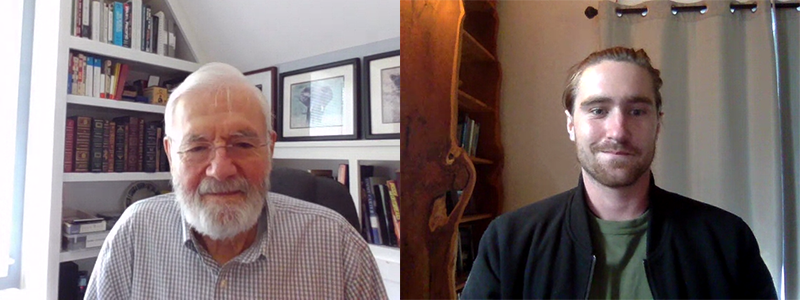
Dr. William “Bill” Foege, EIS class of 1962, is a physician and epidemiologist well known for his global health contributions that led to the eradication of smallpox in the late 1970s. Dr. Foege was appointed as CDC Director by President Jimmy Carter and served in this role from 1977 to 1983. In 1984, Dr. Foege co-founded the Task Force for Child Survival and Development, now the Task Force for Global Health. He later joined The Carter Center as its first executive director and fellow for health policy. Dr. Foege has also served as a Presidential Distinguished Professor of International Health at Emory University’s Rollins School of Public Health, and as a senior medical advisor for the Bill & Melinda Gates Foundation. In 2012, President Barack Obama awarded Dr. Foege the Presidential Medal of Freedom, the nation’s highest civilian honor. Dr. Foege’s lifelong dedication to promoting global public health continues to inspire future generations of public health leaders. He is interviewed by his grandson, Max Morell-Foege.
Listen to interview [MP3 – 6 MB] | Transcript [96 KB, 1 Page]
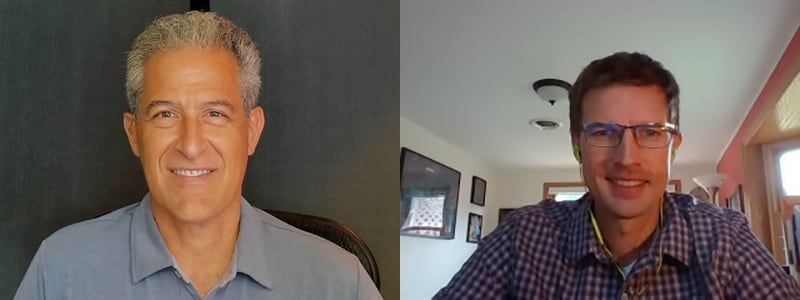
Dr. Richard “Rich” Besser, EIS class of 1991, is the President and CEO of the Robert Wood Johnson Foundation. Before joining the Foundation, he served eight years as chief health and medical editor for ABC News. He served as acting director of CDC during the initial response to the H1N1 influenza pandemic. Dr. Besser received the Surgeon General’s Medallion for his leadership during the H1N1 response, and in 2011, the Dean’s Medal for his contributions to public health from the Johns Hopkins Bloomberg School of Public Health. Dr. Besser is a leading voice on the importance of healthy and equitable community conditions, the need for economic inclusion for the wellbeing of families, accountable public health and healthcare systems, and advocating for racial justice. He is interviewed by fellow EIS alum Ian Pray (2019 class).
Listen to interview [MP3 – 8 MB] | Transcript [96 KB, 1 Page]
Access the full 45-minute recording.
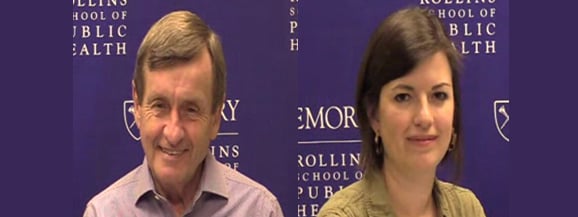
Dr. James “Jim” Curran, EIS class of 2004, is Dean Emeritus and Professor of Epidemiology and Global Health at Emory University’s Rollins School of Public Health. In 1981, Dr. Curran was tapped to lead a CDC task force charged with determining what was behind the first cases of what we now know as AIDS. A pioneer in HIV/AIDS prevention, Dr. Curran led the nation’s efforts in the battle against HIV/AIDS for 15 years, earning the rank of the assistant surgeon general. Dr. Curran was awarded the Surgeon General’s Medal of Excellence in 1996 and received the John Snow Award from the American Public Health Association in 2003. For his Disease Detective-like work and leadership, he was awarded an honorary member of the EIS class of 2004. He has served as co-director of the Emory Center for AIDS Research and holds faculty appointments in the Emory School of Medicine and the Nell Hodgson Woodruff School of Nursing. In 2009, the Rollins School of Public Health Dean’s position was named the James W. Curran Dean of Public Health in his honor. He is interviewed by his daughter and fellow EIS alum, Katie Curran (2013 class).
Listen to interview [MP3 – 8 MB] | Transcript [74 KB, 2 Pages]
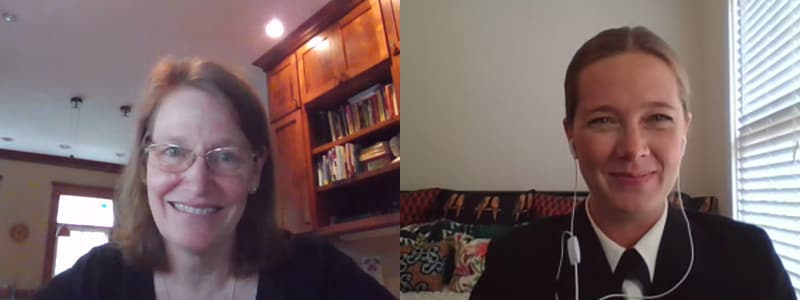
Dr. Barbara “Barb” Marston, EIS class of 1990, retired from CDC in 2022 as the Deputy Director for Science and Program in the Division of Parasitic Diseases and Malaria at CDC. During her CDC career, Dr. Marston has worked on a wide range of domestic and international public health programs, including CDC’s Ebola response, the Division of Global Health Protection’s Health Recovery Branch, and CDC’s response efforts in Haiti following the 2010 earthquake. Dr. Marston has also worked as a medical epidemiologist in the Care and Treatment Branch of the Global Aids Program, serving as CDC’s core team representative for Tanzania and Kenya. Dr. Marston has received several awards for outstanding public health service including the Global AIDS Program Humanitarian Award and the Center for Global Health Director’s Medal of Excellence in Global Health, an award that commends her contributions to public health in Haiti. She is interviewed by fellow EIS alum Anna Chard (2019 class).
Listen to interview [MP3 – 7 MB] | Transcript [74 KB, 2 Pages]
Learn how CDC’s Epidemic Intelligence Service (EIS) officers—known as disease detectives—responded during the Severe Acute Respiratory Syndrome (SARS) outbreak in 2003 in this NPR podcast interview with former CDC Principal Deputy Director, Anne Schuchat, MD. Beginning with her time as an EIS officer in the class of 1988, she has played key roles in CDC emergency responses including the 2009 H1N1 pandemic influenza response, the 2003 SARS outbreak, the 2001 bioterrorist anthrax response, and others. Schuchat served as CDC’s principal deputy director from September 2015 until her retirement in 2021 and served as acting CDC director in 2017 and 2018.
Learn about CDC’s Epidemic Intelligence Service (EIS), including the open application period and selection process, through the American Public Health Association’s (APHA) Epidemiology Section podcast interview with Eric Pevzner, Chief of the EIS program. Hear about the impact of the service provided by these disease detectives during their 2-year experiential fellowship, and find out about other fellowship and internship opportunities at CDC.
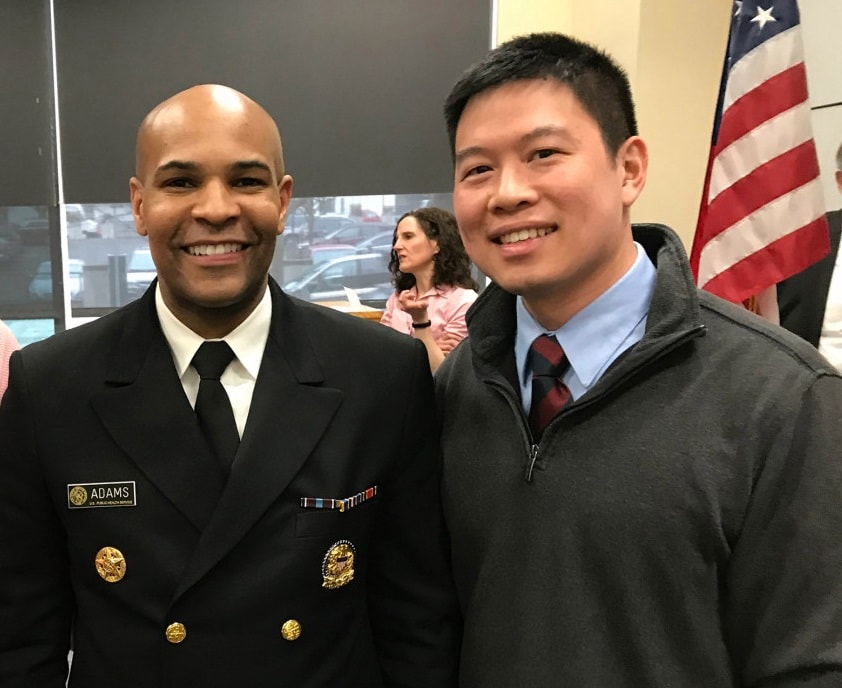
Alex Wu with U.S. Surgeon General Jerome M. Adams in 2019.
Alexander Wu, ScD, MPH, EIS Class of 2018, is featured in the May 2020 Harvard University Gazette collection of stories from alumni who are engaged in the battle against COVID-19. Wu recently returned from a deployment in the Pacific Northwest where he worked with a Native American community. His contributions included training contact tracers, advising community leaders and the executive director of the Northwest Portland Area Indian Health Board, and answering questions about COVID-19 on weekly video conference calls with over 200 tribal clinicians nationwide. Learn more about Wu’s work in the Harvard Gazette feature, A COVID-19 battle with many fronts.
EIS alum Seema Yasmin (2011 class) draws on her perspective as a former CDC disease detective to address the COVID-19 response and the crucial role of EIS officers in this Rolling Stones magazine article. February 29, 2020

Amy Board, DrPH, MSW, MPH, EIS Class of 2019, shares the excitement about her acceptance into EIS and an assignment aligning with her interests in this University of North Texas spotlight article.
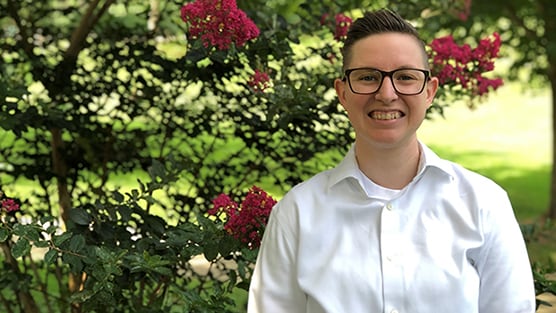
Olivia McGovern, PhD, EIS Class of 2018, shares her public health inspiration and journey in this University of Michigan spotlight article.
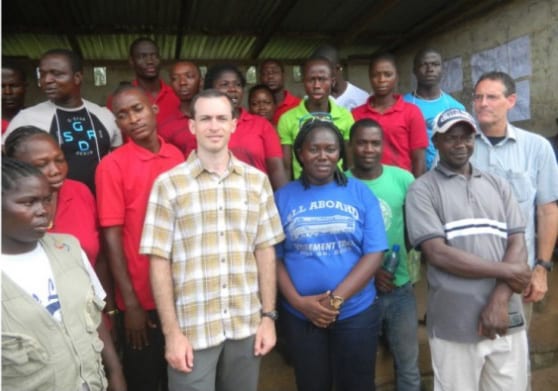
Isaac Benowitz, MD, EIS Class of 2014, was assigned to the New York City Department of Health and Mental Hygiene and helped investigate a 2015 outbreak of Legionnaires’ disease.

In the Democratic Republic of the Congo (DRC), the “disease detectives” of CDC’s Epidemic Intelligence Service (EIS) are proving their worth as they work to stop the second-largest Ebola outbreak in history. Of the 131 current EIS officers, 33 have volunteered to support CDC’s response in the DRC and neighboring countries thus far. They work hard to prevent travelers from spreading Ebola, to keep it from gaining a foothold in healthcare facilities, and track down the contacts of people who have contracted the disease.

In fighting an outbreak of Ebola, there are days of slow, steady progress – and then there are days of drama. Nathan Furukawa, a CDC Epidemic Intelligence Service officer (Class of 2018), saw both when he was deployed to the Democratic Republic of the Congo from June through August this year.

Stopping the spread of the Ebola outbreak in the Democratic Republic of the Congo (DRC) means keeping a close eye on the borders. Travelers leaving the country are getting closer scrutiny because of the year-old epidemic. So are people traveling within the country and coming to unaffected cities from areas where the disease has taken hold. This close watch kept Epidemic Intelligence Service (EIS) officer Amy Heinzerling (Class of 2018) busy during her recent deployment to the DRC’s eastern border city of Goma. She called her deployment “an incredible opportunity,” but also “humbling, as a lot of experiences are in public health.”
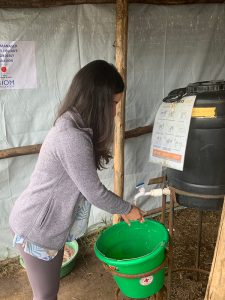
CDC Epidemic Intelligence Officer (EIS) Dr. Samira Sami served as Epidemiology and Surveillance Lead during multiple deployments to Rwanda for the 2018 Eastern DRC Ebola Response. Sami and team provided technical assistance to the Ministry of Health to strengthen Ebola surveillance activities. In August 2019, I returned to help the MOH evaluate their efforts and identify gaps in surveillance to keep communities safe from Ebola virus transmission. It was a very exciting moment when I learned that we would be able to implement our evaluation tools at upcoming Ebola simulation exercises.
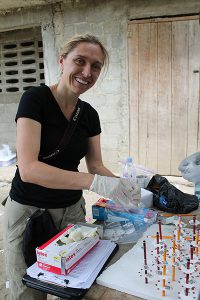
Epidemic Intelligence Service (EIS) Officer Lieutenant Alaine K. Knipes is one of CDC’s devoted humanitarian health experts. Alaine’s extensive background in parasites has allowed her to address neglected tropical diseases, such as lymphatic filariasis, while at CDC. While parasites are still Alaine’s primary research interest, her passion for detecting diseases led her to emergency response and recovery work as an EIS officer. Most of Alaine’s current work involves water, sanitation and hygiene, a vital public health issue. “I love my work at the CDC because, by assisting other countries in responding to disease outbreaks, I am applying my scientific training and expertise to keep Americans safe and healthy.”
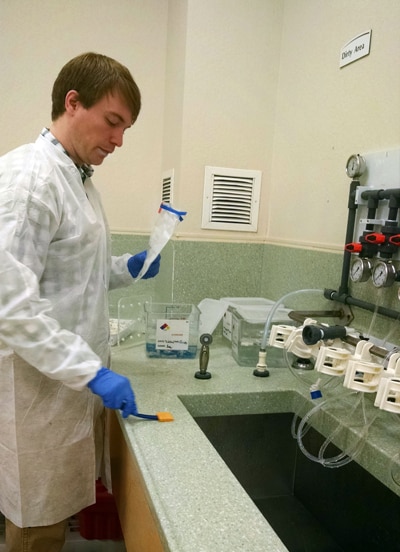
In the fall of 2014, as the Ebola epidemic in West Africa continued to grow, Rapid Ebola Preparedness (REP) teams led by the Centers for Disease Control and Prevention spread out to key hospitals across the United States. CDC disease detective William (Chris) Edens, PhD, was a REP team responder. On his first assignment, Edens worked with hospital staff on the proper use of personal protective equipment (PPE).

CDC Epidemic Intelligence Service (EIS) Officer Tiffany Walker, MD, was one of the first members of CDC’s infection prevention and control (IPC) team in Sierra Leone to work alongside partner agencies and help ambulance drivers protect themselves from getting Ebola. Few standard operating procedures existed to evaluate correct use of PPE to limit exposure in ambulance and burial teams. The ambulance team in Bombali had just lost several members to Ebola. Her role was to monitor and train healthcare workers on the use of personal protective equipment (PPE) and IPC protocols.
